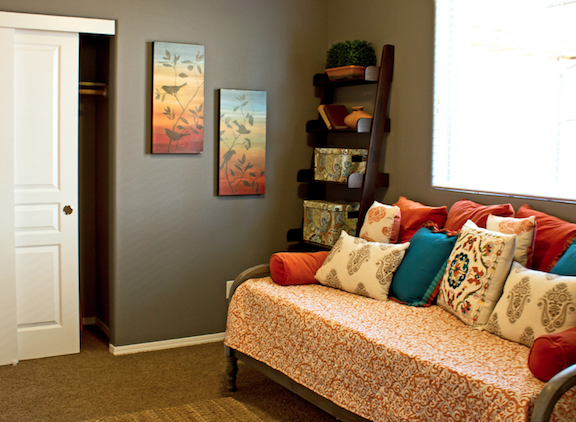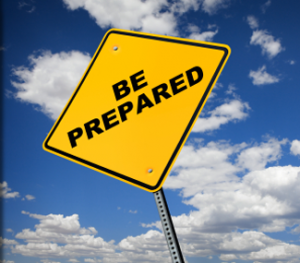The first thing you must take into consideration as a top priority is safety. Travelling can be an exciting adventure for doing amazing things and visiting beautiful places. But in order to enjoy all those things you must put your security and safety first. Here are some breakdown examples a young travel must be aware of and how best resolve the problem.
- SOLO TRAVELLING
Step 1: If you decide in the beginning that you want to travel by yourself, make sure you’re 100% sure you want to do it. This is because some people struggle with loneliness and it is very tough sometimes to venture out in the open world all by yourself. If you aren’t sure or not confident, then the solution is travel with another person you can trust completely or be with a group of people like friends or family. Having someone with you on your long trip will make it more fun and safe.
But for those who are absolutely sure about going solo, then go and do it. I just did my inter railing for 1 month by myself and I absolutely loved it. You get the chance to meet other fellow solo travellers and meet amazing people that might forge into good long friendships.

- COUCHSURFING
Step 2: Now some of you may know, there is an online social networking website called “Couchsurfing”. It is similar to Facebook or Linkedin, it is a site that connects people, strangers for arranging accommodations on couches (sofas).
How does it work?
You set up your profile, fill in all your details, including your address and you’re your telephone number. If you don’t wish to provide those personal details it is not obligatory at all. Then once you finish all that then you can search a destination, city or country and find people to get in touch and stay with him.
There are two categories:
–> The first is the host who accepts requests from travellers, welcomes them to your accommodation and looks after them for a few days or even weeks.
–> The second is the traveller who gets in touch with the host and send out message requests asking if they can stay in the host’s accommodation.
Is it free?
Yes it is. But sometimes the hosts may ask you to provide a gift like alcohol such as a bottle of wine or spirits if other travellers are staying around the same time and house parties happen. The only thing you need to pay for is a small fee of £12 for the annual subscription of having the account.
Is Couchsurfing dangerous?
Couchsurfing like other social networking sites has its risks and dangers to your own safety because you are putting your own safety into a stranger’s hands. The prospect of that is very uncomfortable and there is the issue that you don’t exactly know your host very well. From speaking to other fellow travellers, some say they enjoyed themselves and others say they will never do it again.
From personal experiences, my first destination on inter railing was Oslo (the capital of Norway). To save me a bit of money, I decided to get in touch with a guy and I asked him if I could stay at his place for two nights only. He agreed, on condition that I provide a bottle of whiskey and I thought it was a good deal. From reading his profile, he looked slim, he danced as a hobby and he worked in computer programming. When I arrived at his address and meet him, it turned out he was very over weight and he was a treated schizophrenic. What a bombshell! In the end, the experience was good fun as there over 10 travellers staying and I had a great time.
To conclude this topic, Couchsurfing is slightly safer for young solo male travellers, then for solo females. Especially if a young woman stays at a guy’s house, there can be potential risks like a man trying to take advantage of the situation or worse. On the upside, I had meet many solo women travellers and they said they love couch surfing on the bases of meeting new people.
If you have any doubts about Couchsurfing, then the best solution is staying at a hostel, a B&B or a hotel because there you will stay in a secure environment.
Anya, 23 shares her experiences:
“I tried couch surfing for the first time when I was 19. It was a friend of mine, also female, and I, and we stayed at this guy’s place in London. I would say it was my worst couch surfing experience, as the host, who you come to put your trust in, lied to us about the location of his place and about the fact that he lived on his own (his profile said he lived with his partner). We agreed to stay there for 2 or 3 nights, but ended up simply leaving for another place, as my friend and the host didn’t get along. We were going to stay in a hostel, but were contacted by another couchsurfer on that day, he understood the difficult situation we were in and offered his place. We stayed there for 1 night, met amazing people (friends of the host), had an amazing time exploring the city with locals and having a fun jam session in the end of the day on top of that. That’s how my worst couchsurfing experience turned into my best one.
I have used couchsurfing many times since then, both to “surf” and host people. It’s a wonderful way to become more open-minded and discover new places and cultures. Don’t let the bad experiences stop you from developing wanderlust and having the time of your life anywhere in the world – there are more nice people out there to be met. One practical tip though – if you’re excited about trying outcouchsurfing, but still worried about staying at a stranger’s place, take all the precautions: read the references from other travellers on the website, and maybe even skype your future host to have an idea of who to expect to meet when you get there.
Other than that – go explore and find yourself through new travels.”
- ACCOMODATION
When you are staying in a cheap hostel, B&B or even a cheap hotel always be aware and informed when you are making your bookings. When you book a cheap accommodation, they normally demand that you pay a booking fee with you credit or debit card to guarantee the reservation. Once that is done, you normally receive an email with the details with a section that says “Methods of Payment”. Normally, in this situation you either have to pay the accommodation in cash at the reception or a credit card bank transfer. Some people don’t realise this and it can lead to all kinds of problems. So if you book a place, read the details and even call the property on the telephone to double check the information.

- PADLOCKS
As young travellers, you normally tend to be on a budget and stay in cheap accommodations to get through your long trip. I would advise you to take along a secure padlock. Padlocks are great for keeping your stuff secure and safe. If you want to travel light around a city in order to do all the tourism stuff, padlocks is your solution. In hostels, they normally have lockers available and padlocks for sell if you are travelling with a big rug sack or a case. My advice is buy them before your trip so it is cheaper and take it with you wherever you go because the last thing you want is to have your stuff stolen or missing like your passport, money, tickets and other valuables. So padlocks will guarantee your belongings to be safe if you put them in lockers.
- CLOTHING KIT
If you are one of those travellers concerned about avoiding putting all your essentials like your wallet, phone, tickets and keys in one place, then do not despair. You can buy a waist bag which is very ideal for putting all those things in one place and it is secure. You simply put it around your waist, clip it together, hide it within your clothing and you are sorted. It is also great to avoid being pick pocketed or robbed by anyone who sees you as a target.
Clothes with zip pockets
Another item that can help you with your travelling is having clothes with zips on your pockets. They are great to keep your belongings secure and they are very practical. You can buy then online or directly at stores like Mountain Warehouse and Cotswold Outdoor.
- FIRST AID KIT
If you want to go the extra mile with safety, you can get take along your own first aid kit in case you encounter any physical problems along the way. It is not obligatory, but on your inter rail pass you can apply for travel insurance, which covers your medical needs if you have an injury or problem whilst you are abroad.
Want to know more? Try our info pages:
Related article:
Get Involved:
Want to reach thousands of young Cardiffians? Submit your news here or register to become a contributor.
*Want to become a reviewer? Join the Sprout Editorial Group on Facebook or email tom@thesprout.co.uk.
Click here for the next Sprout Editorial Group meeting.
Comment below:
It’s free and quick to comment below but we recommend signing up with your email or as a guest to keep usernames Sprouty and anonymous (and never post personal details!).
If you want more info on staying safe online, check out our online safety section.






